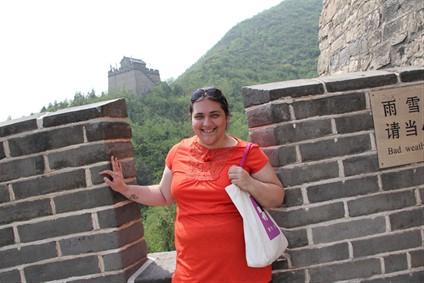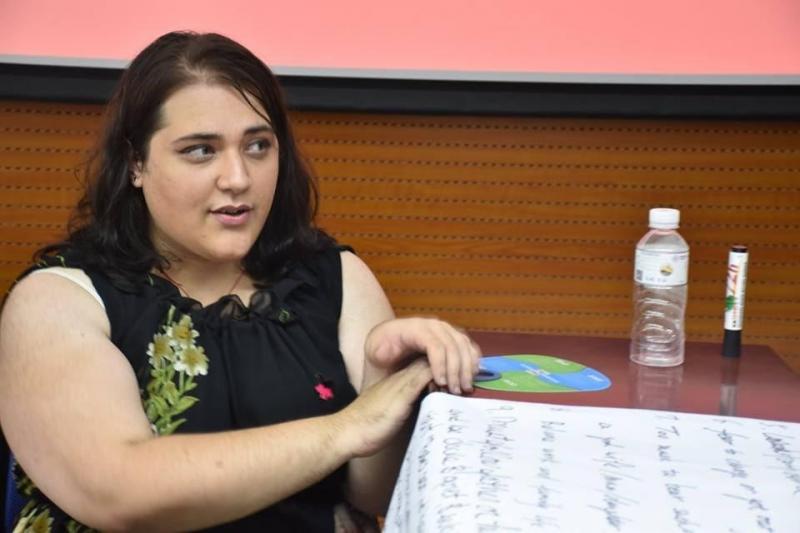L’activisme pour les droits et la protection des travailleuses-eurs du sexe en Hongrie
En septembre 2015, l'Association hongroise des travailleuses-eurs du sexe (SZEXE) a célébré 15 ans de travail au service de la lutte pour les droits des travailleuses-eurs du sexe, pour leur protection et contre leur stigmatisation.
SZEXE a été créée par des travailleuses du sexe, pour la plupart d’origine rom et travaillant dans la rue, qui se sont réunies avec leurs allié-e-s pour protester contre l'introduction d'une loi réglementant le travail du sexe. Cette action est souvent décrite comme marquant le début de l'activisme sur le travail du sexe en Hongrie.
« Zones de tolérance »
La loi contre laquelle SZEXE a protesté a été « rédigée afin de pousser les travailleuses-eurs du sexe, principalement d'origine rom, à quitter Józsefváros, le 8ème arrondissement de Budapest, de sorte que la zone puisse être réhabilitée et que les bâtiments publics puissent être privatisées plus facilement ». Selon cette loi, les municipalités qui comptent une population de plus de 50.000 personnes ou des quartiers où le travail du sexe est considéré comme envahissant devaient délimiter des soi-disant «zones de tolérance». Il a été déclaré illégal de proposer des services sexuels en dehors de ces zones alors que les autorités hongroises étaient réticentes à les identifier. Cela a poussé un nombre important de travailleuses-eurs du sexe vers l'activité illégale, un grand nombre d’entre elles ayant été condamnées à une amende ou placées en détention.
Pour aggraver encore la situation, les travailleuses-eurs du sexe entretiennent des rapports hostiles avec la police :
«Les travailleuses-eurs du sexe craignent la police, plutôt que de pouvoir compter sur elle pour les défendre contre des actes de violence ou d'autres crimes. » – SZEXE
Mettre la maltraitance au défi
L'une des priorités de SZEXE est de fournir une aide juridique aux travailleuses-eurs du sexe : Depuis sa création, l'organisation a initié de nombreuses actions en justice devant les tribunaux. En conséquence, certains districts de Budapest se sont vus obligés « d’identifier des zones de quasi-tolérance ». En dépit de ces décisions, SZEXE a été témoin à de nombreuses reprises de mauvais traitements à l’égard des travailleuses-eurs du sexe par la police et a constitué des dossiers d’information à leur sujet.
« La police a profité de l'absence de certitudes en matière juridique concernant ces zones de tolérance et les travailleuses-eurs du sexe ont été ciblées injustement afin de permettre à la police d’atteindre ses quotas d’amendes ». - SZEXE

SZEXE a contesté avec succès des centaines « d’amendes et de détentions arbitraires pratiquées par la police. »
Depuis que la Hongrie a rejoint l'UE en 2004, l'association a également mis en œuvre des projets pilotes innovants pour « favoriser l'auto-organisation de la communauté, pour autonomiser les travailleuses-eurs du sexe en leur fournissant des services juridiques et des services associés au VIH et en s’exprimant ouvertement contre la marginalisation et la pauvreté. Ces projets ont bénéficié de subventions du Fonds social européen ».
SZEXE soutient également les travailleuses-eurs du sexe en proposant de la formation par des pairs, des conseils en matière de migration, des services de santé communautaires, le développement des compétences entrepreneuriales et renforcé son travail de plaidoyer au niveau national et international. À la suite de ces efforts de lobbying et à la production d'un rapport alternatif, le Comité pour l'élimination de la discrimination à l'égard des femmes (CEDAW) a appelé le gouvernement hongrois à « adopter des mesures visant à prévenir la discrimination contre les travailleuses-eurs du sexe et de veiller à ce que la législation sur leurs droits à des conditions de travail sûres soit garantie aux niveaux local et national ".
Une société civile hongroise sur le déclin
En dépit des nombreuses batailles et victoires remportées à ce jour, "la situation des travailleuses-eurs du sexe et leur mobilisation a décliné au cours des dernières années en Hongrie", selon SZEXE. Etant donné les mesures de répression contre la société civile et contre certaines ONGs par l'actuel gouvernement d'extrême-droite, SZEXE se retrouve parmi les organisations qui ont perdu « toutes ses principales sources de financement national dans un contexte de rétrécissement de l’espace d’expression de la société civile ». Les ONG pro-gouvernementales, quant à elles, bénéficient d’une ligne budgétaire destinée à soutenir les « valeurs familiales traditionnelles et (le renforcement de) l'identité nationale ».

Une autre facette de cette tendance inquiétante est une loi sur les délits de 2012, qui a un effet dévastateur sur les groupes marginalisés, y compris la population rom, les personnes sans-abri, les toxicomanes et les travailleuses-eurs du sexe. Cette loi a favorisé la discrimination et un contrôle disproportionné des travailleuses-eurs du sexe qui reçoivent « des amendes pour non-respect de réglementations vagues ou arbitraires en matière de travail du sexe ». SZEXE déclare qu’en 2012 seulement, plus de 14.000 cas de délit ont été enregistrés contre les travailleuses-eurs du sexe. Cette situation est aggravée par le fait qu’en l'absence d'engagement du gouvernement pour répondre à leur droit à la santé, les travailleuses-eurs du sexe sont encore plus vulnérables qu’avant.
Mouvement(s) inclusifs
être créés et soutenus pour continuer à contester les discriminations, les stigmatisations et les violations des droits humains (pas seulement en Hongrie, mais à l'échelle mondiale). SZEXE a rejoint l’AWID comme membre suite à sa participation au Forum international de l’AWID en 2012.
"Ce rassemblement a vraiment été une source d'inspiration pour les collègues de SZEXE, c’était la première fois qu’elles ont eu l’occasion d’entrer en contact avec le mouvement féministe international et d’en apprendre plus sur les luttes des femmes, parfois très similaires, dans le monde" - SZEXE
La participation de SZEXE au Forum a renforcé sa prise de conscience du potentiel de mobilisation collective qui existe au sein du (des) mouvement(s) pour les droits des femmes. L'organisation, « inspirée par la diversité des voix et des causes du mouvement, s’exprime ouvertement contre le sexisme, la whorephobia, l'homophobie et la transphobie, le racisme et les préjugés sociaux que l’on retrouve dans trop de sociétés. »
« SZEXE vise à contribuer à un mouvement féministe qui soit inclusif des besoins et des voix des femmes qui sont souvent laissées pour compte par les mouvements issus de la société civile et par les politiques, comme c’est le cas par exemple des femmes trans*, des travailleuses du sexe et des migrantes.» - SZEXE
Visionnez le film "Sex Workers Against the Tide" (travailleuses-eurs du sexe à contre-courant), en anglais, avec sous-titres hongrois.











